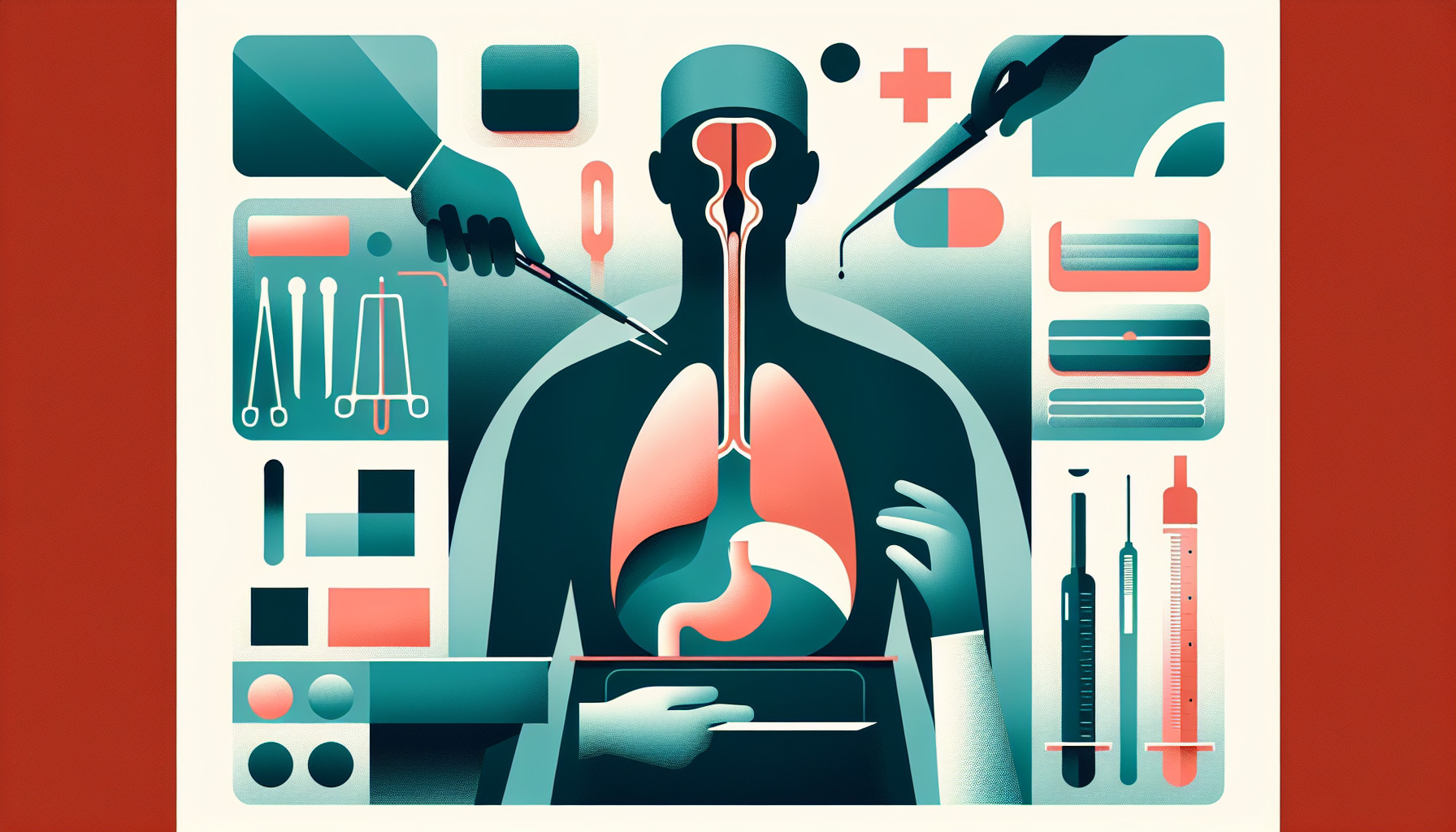Our Summary
This research paper discusses a common issue among patients who have recently undergone tonsillectomy surgery: a lack of understanding about typical post-surgery symptoms. This issue, combined with shorter hospital stays, has led to many patients seeking help from their general practitioners (GPs), who often struggle to distinguish between normal recovery symptoms and signs of infection. This confusion has resulted in an overuse of antibiotics. The paper’s goal is to provide guidelines for GPs dealing with post-tonsillectomy patients to help them manage common complaints and symptoms, and to better determine when antibiotics are genuinely needed.
FAQs
- What are the typical post-surgery symptoms after a tonsillectomy?
- How can general practitioners better manage patients after tonsillectomy surgery?
- When should antibiotics be used after a tonsillectomy?
Doctor’s Tip
One helpful tip a doctor might tell a patient about tonsillectomy is to make sure to stay hydrated and drink plenty of fluids after the surgery. This can help with healing and prevent dehydration, which is important for a successful recovery. Additionally, they may advise the patient to eat soft, easy-to-swallow foods and avoid rough or scratchy foods that may irritate the throat. Lastly, the doctor may recommend taking prescribed pain medication as directed to manage any discomfort.
Suitable For
Patients who are typically recommended for tonsillectomy surgery include those who suffer from frequent or severe throat infections, such as tonsillitis, that do not respond well to other treatments. Other conditions that may warrant a tonsillectomy include enlarged tonsils that cause difficulty breathing or swallowing, obstructive sleep apnea, or recurrent episodes of strep throat.
In some cases, children with enlarged tonsils may also undergo a tonsillectomy if they are experiencing growth or development issues, such as poor weight gain or obstructive sleep apnea that is affecting their quality of life.
Overall, the decision to recommend tonsillectomy surgery is typically made by an ear, nose, and throat (ENT) specialist after assessing the patient’s medical history, symptoms, and overall health.
Timeline
Before Tonsillectomy:
- Patient experiences frequent sore throats, difficulty swallowing, and other symptoms related to tonsillitis or tonsil stones.
- Patient consults with an ear, nose, and throat (ENT) specialist who recommends a tonsillectomy.
- Patient undergoes pre-operative consultations and tests, such as blood work and a physical exam.
- Patient is advised on pre-surgery instructions, such as fasting before the procedure.
After Tonsillectomy:
- Patient undergoes the tonsillectomy surgery, which typically lasts around 30 minutes to an hour.
- Patient wakes up in the recovery room and is monitored for any immediate complications.
- Patient may experience pain, swelling, and difficulty swallowing in the days following the surgery.
- Patient is discharged from the hospital on the same day or the next day, depending on the individual case.
- Patient is advised on post-operative care, such as resting, staying hydrated, and avoiding certain foods.
- Patient may experience a gradual improvement in symptoms over the following weeks as the throat heals.
- Patient may experience some post-operative complications, such as bleeding or infection, which may require medical attention.
Overall, the timeline of a patient before and after tonsillectomy involves a period of preparation, surgery, and recovery, with a focus on managing pain and monitoring for any potential complications. It is important for patients to follow their healthcare provider’s instructions closely to ensure a smooth recovery process.
What to Ask Your Doctor
What are the expected symptoms and recovery timeline after a tonsillectomy?
What signs of infection should I watch out for after the surgery?
How can I manage pain and discomfort during the recovery period?
Are there any specific dietary restrictions or recommendations I should follow post-surgery?
When can I expect to return to normal activities, such as work or exercise?
What follow-up appointments or check-ins should I schedule after the surgery?
Are there any potential complications or risks associated with a tonsillectomy that I should be aware of?
How can I best care for my throat and prevent complications during the recovery process?
Are there any specific medications or treatments I should avoid after the surgery?
What are the warning signs that I should seek medical attention or contact you for further evaluation?
Reference
Authors: Cooper L. Journal: Aust Fam Physician. 2016 May;45(5):289-91. PMID: 27166463
